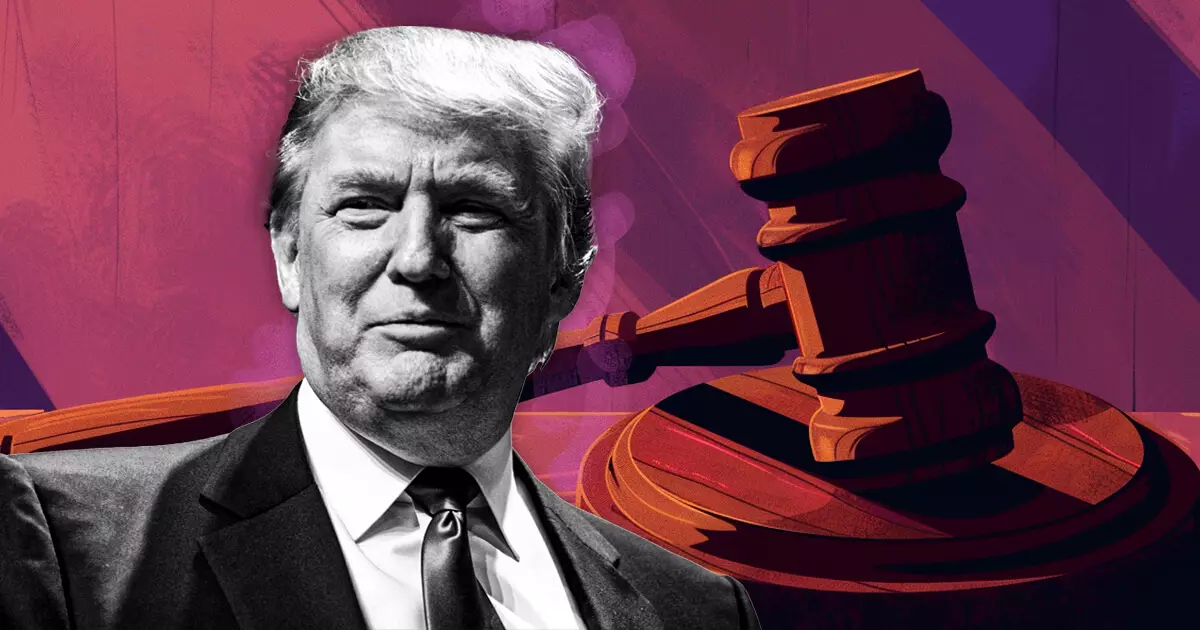In recent years, the cryptocurrency industry has experienced explosive growth, attracting attention from both investors and regulators alike. This surge in interest is accompanied by a pressing need for clear regulatory frameworks. One notable player in this space is Former President Donald Trump, whose venture, World Liberty Financial, aims to create a significant presence in the decentralized finance (DeFi) sector. However, the path forward for the project is fraught with challenges stemming from the current regulatory environment in the United States.
SEC Commissioner Mark Uyeda has been outspoken about the hurdles facing Trump’s initiative. In an anticipated interview, Uyeda underscored the fact that World Liberty Financial will not be insulated from the rigorous regulations that govern other crypto-related enterprises. The implications of these regulations are significant; they entail rigorous disclosure requirements that all US-based crypto ventures must navigate. This means that despite Trump’s prominence and influence, the project must adhere strictly to the same rules that lesser-known firms are subjected to.
A crucial aspect highlighted by Uyeda is the role of the SEC as a “disclosure regulator.” Unlike a merit regulator, the SEC does not evaluate the potential success or failure of a project based on its perceived value or risk. Instead, its priority lies in ensuring that all projects provide adequate information to investors, thereby promoting transparency in the marketplace. This approach serves as both a protective measure for investors and a challenge for entrepreneurs, including those behind World Liberty Financial.
Uyeda’s statement reveals an essential truth: the SEC’s focus on ensuring compliance with disclosure norms does not take into account the unique characteristics or potential contributions of any individual venture. Consequently, this regulatory landscape may appear daunting, especially for a project tied to a figure as polarizing as Trump. The insistence on compliance with stringent standards could pose significant obstacles as the project attempts to establish itself within the competitive DeFi arena.
Adding another layer of complexity, the current political climate could influence the trajectory of World Liberty Financial. With a stark partisan divide within the U.S. political landscape, there is growing speculation that Democratic legislators may advocate for stricter regulations on Trump’s endeavor purely based on its association with the former president. This potential for politically motivated crackdowns underscores the unpredictable nature of navigating the crypto regulatory environment, where external factors can profoundly impact business viability.
Uyeda’s comments regarding this potential political fallout indicate a measured approach; it emphasizes the need for World Liberty Financial’s legal team to be prepared for the scrutiny that presidential involvement inherently attracts. As he aptly advised, hiring competent legal counsel will be indispensable for navigating what he refers to as a “confusing and opaque process.” For any venture, particularly one under close watch, having thorough legal support can make the difference between success and downfall.
While the SEC has faced criticism for its somewhat ambiguous regulatory stance, it is important to note that this uncertainty is not unique to World Liberty Financial. The crypto industry as a whole has grappled with the SEC’s perceived lack of clear guidance, resulting in concerns about whether the U.S. will remain a competitive player in this rapidly evolving market.
Commissioner Hester Peirce has echoed these sentiments, referring to the current state of regulation in the crypto industry as “toxic.” The lack of clarity not only stifles innovation but also risks driving emerging technologies and innovations overseas where regulatory environments may be more favorable. The growing calls from lawmakers and industry leaders for a more transparent regulatory framework underscore a critical need for establishing a comprehensive strategy to address these challenges proactively.
As World Liberty Financial sets out to carve its niche in the cryptocurrency landscape, the challenges are multifold. Despite Trump’s claims that the project will position the U.S. as a leader in the global crypto market, its success hinges on the ability to navigate a convoluted regulatory landscape while obtaining the necessary clarity from the SEC and other governing bodies.
Ultimately, the future of World Liberty Financial will depend not only on its capacity to meet regulatory demands but also on the broader evolution of crypto regulation in the United States. With heightened scrutiny and political factors at play, navigating these turbulent waters will require strategic foresight, robust legal insight, and uncompromising dedication to transparency.















